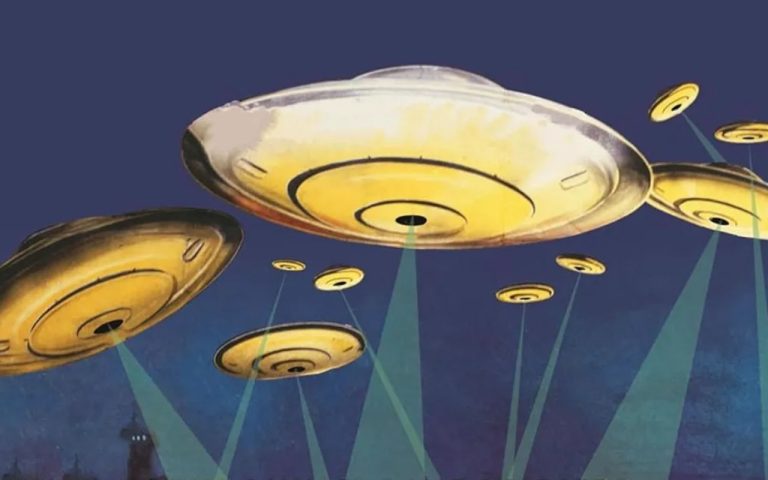
Joan Didion once said, “We tell ourselves stories to survive.” While this statement sounds pleasant, it probably reflects neither the purpose nor the function of storytelling. It is closer to the truth that Modifying reality: How sequels, remakes, comebacks, and denials explain the world —We are compelled to make sense of the world in narrative form, and we cannot disregard it. That is the way our sensory apparatus works. Over time, the discovery of new facts and changing attitudes necessitate a revision of these stories.
Chris Gavaler, an English professor and an authority on comics, and Nat Goldberg, a philosophy professor at Washington and Lee University, previously co-authored Superhero Thought Experiment and Modifying Fiction, Fact and BeliefTheir new book now covers a wide range of revisions of all kinds. They propose four models: retroactive continuity, sequels, remakes, and rejections. All of these are common in the world of comics, the world of movies, and various pop culture series; in order to remain entertaining over the long term and to expand the audience base, complexity and surprise must be constantly injected into the storyline. But the authors’ project here is to show that these techniques are not limited to Star Wars and Marvel blockbusters, nor to Harry Potter and The Lord of the RingsInstead, they influence the way we understand history, science, law, politics, and memory itself. We revise stories because we are human.
The author takes great pains to discern which type of revision is at work in a variety of examples. Unless you are already a fan of the Star Wars series, superhero comics, or even Ghostbusters (and knowing its sequels and remakes), their explanations for comebacks in those fictional worlds can be both confusing and enlightening. However, if you think about it from a personal perspective, you will understand, because everyone has been comebacked – when someone lies to you, they are comingback on your past. If you have ever been deceived, that is also a comeback.

The 1619 Project offers a constructive new way to conceive of American history, and it is also a retrospective. The United States has long been recognized as having its origins in 1776, but Nikole Hannah-Jones argues that the true origins of the United States are the landing of the first slave ship. (The Project itself was subsequently revised, or at least clarified, and Hannah-Jones’s own career as a journalism professor was elaborated. Revisions often have their subsequent effects, as Changing reality ) There have been few rewrites as muddled or questionable as the one behind the Make America Great Again campaign. Even the least convincing Star Trek reboot wouldn’t dare make such a uniquely self-serving revision.
Galileo’s continuation of Copernicus’s model of the solar system was rewritten by the Catholic Church, which put him under house arrest for suspected heresy. Four hundred years later, the Church rewrote its statement again, redefining him as one of its “boldest heroes of research.” And so on. There are many examples of real-world revisions in the book, some with life-and-death consequences, like the wildly different interpretations of just five words in the Declaration of Independence (all men are created equal, “all men”) and the Constitution (Who are “We the People”?). Then there are the late-pandemic debates, the Christian rewriting of the Tanakh, reorganizing it to predict the coming of Jesus, and the Supreme Court’s decision on Citizens United The First Amendment is redefined (indeed, “judicial review is defined by redefinition”). One of the book’s most valuable comments on our constant revision of the story one side tells the other has to do with the eugenics movement in the United States. The author provides an exhaustive timeline of the shameful and strange actions that supported eugenics from the 1890s to the 1930s (when South Carolina became the 31st state to pass a sterilization law). This particular history is more hidden than some of the other disturbing stories because it was driven by scholars and intellectuals—who, in the old adage, are also the “victors” who get to write the public record.
To remind us to be vigilant at all times, Changing reality A call for us not to question reality – that is, metaphysically fixed reality – but to question its epistemology. This brings me to the book’s opening chapter, Art. Perhaps it is in the creation of art that revision often plays a crucial role, underscoring the evolution of imagination that is inherent in all things. The world as we know it is our creative output. Ultimately, our memories, from which arguably all art derives, also have to be constantly edited. “Memories are interpretations, or stories, and so they only revise themselves.” We helplessly, but productively, constantly revise our revisions.
Modifying reality: How sequels, remakes, adaptations, and abandoned shows explain the world Written by Chris Gavaler and Nat Goldberg (2024), published by Bloomsbury Academic and available online and in bookshops.

